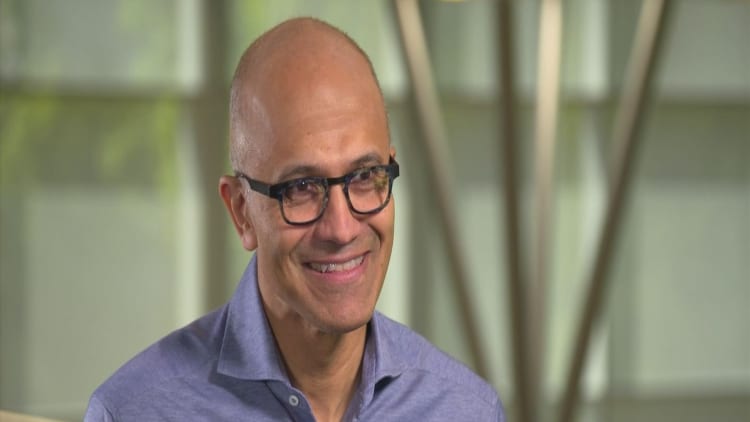Microsoft has researchers working to determine how brain implants can augment a person's intelligence, one of the many ways the company is trying to make technology more accessible to people with various disabilities.
It's a topic that CEO Satya Nadella was eager to discuss on Thursday at Microsoft's eighth Ability Summit in Redmond, Washington.
"In my case, accessibility and accessibility technologies and universal design has given me a deep sense of meaning beyond anything that I just do at work, in terms of the satisfaction that I derive from the work that Microsoft broadly does," Nadella said, in conversation with Jenny Lay-Flurrie, the company's chief accessibility officer.
Research, which Microsoft established as a formal group in 1991, remains a key part of the company's focus, even though it could take time for some projects to drive significant revenue. As of last June, 32 percent of Microsoft's 124,000 employees worked in product research and development.
'Give them a language'
Nadella talked about brain technologies as an example of how Microsoft could empower different groups of people. He referred to Seeing AI, an app Microsoft developed that can help the blind understand what's in front of them. He also said the company is working to assist people with locked-in syndrome, a rare neurological disorder that only allows people to communicate by eye movement.
"How do you give them a language, because of just basically the ability to detect brain activity," said Nadella, whose son Zain is blind and has cerebral palsy.
Facebook said last year that it was looking at ways to connect brains to computers. And Tesla CEO Elon Musk is behind a start-up called Neuralink, which is seeking to develop brain-machine interfaces.
Earlier this year ZDNet reported that Microsoft employees had sought a patent for a system that could take action based on brain input. The research doesn't indicate whether Microsoft could release new products with this type of capability anytime soon.
Nadella is excited about the resources the company is pouring into the research.
"To me, being able to sort of really take that and channel it, see things like at one week where you have these thousands of folks across the company come together and invent these new technologies has been eye-opening for me," he said. "In fact, I'm just getting ready to even host a dinner with some of the researchers that are working on the brain — you know, human-brain interface."



